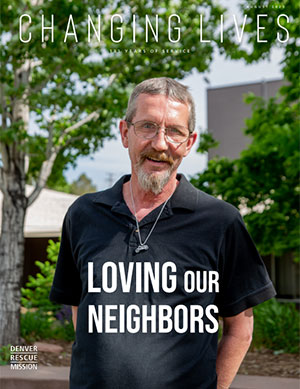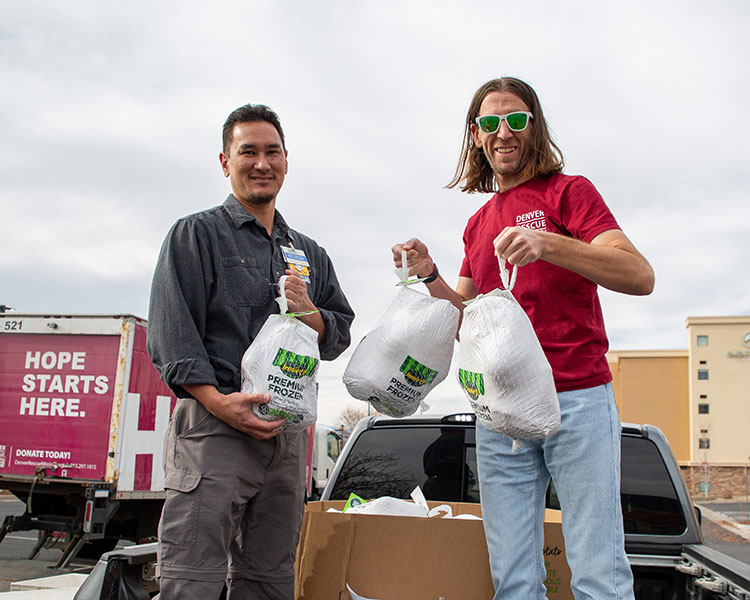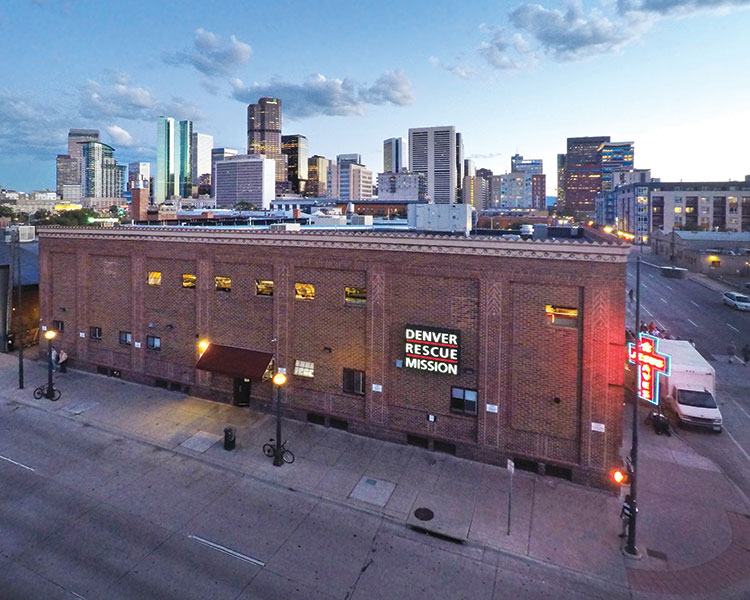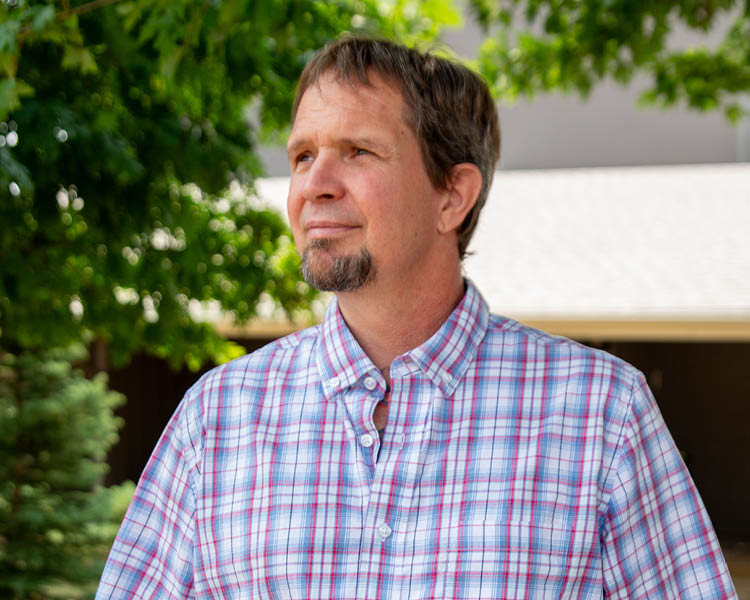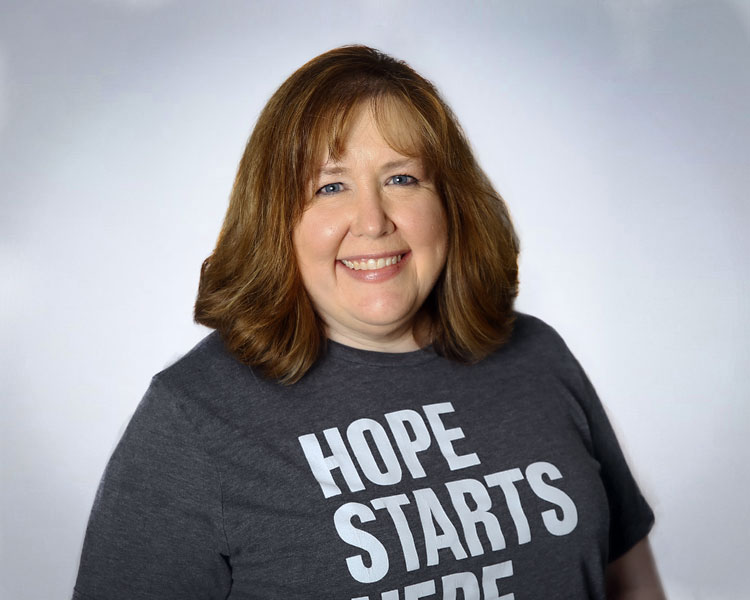We often see people on the streets holding signs, but how often do we think about their stories? Hard times, anything helps. This is what Bob wrote on his sign when he was panhandling on the streets. And for those who made time to stop, their acts of kindness made all the difference.
Bob moved to Colorado to live with his son when COVID began. As his son was working, Bob didn’t have a job and found himself drinking more and more every day to pass the time. What started as casual drinking turned into an addiction.
After an argument with his son about his drinking, Bob decided to go out onto the streets. For a year and a half, he lived on the streets, occasionally going back to stay with his son and his son’s kids.
During that time, Bob would panhandle on street corners, holding his sign that said, “hard times, anything helps.” Standing there with his sign as people drove by, he couldn’t help but feel embarrassed.
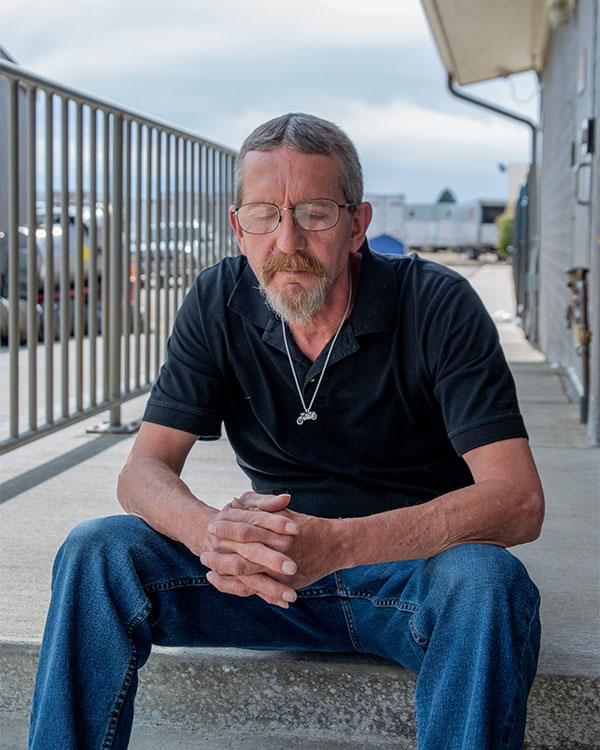
“Sober, it was embarrassing. Once you got drunk enough, you didn’t care,” he said. “Now that I’m sober, looking back, I feel like an inch tall that I let that happen to myself. I’m a better person than that. I want to show my son that everything he did for me didn’t go to waste.”
Bob is so grateful for the love—even if it was tough love—that his son, daughter and grandchildren showed him during that time in his life. That type of love, along with the kindness of strangers, made all the difference.
Just smiling, waving or making eye contact meant something to Bob during his time on the streets. But even with the kindness of strangers, Bob knew that living on the streets and panhandling wasn’t a permanent solution.
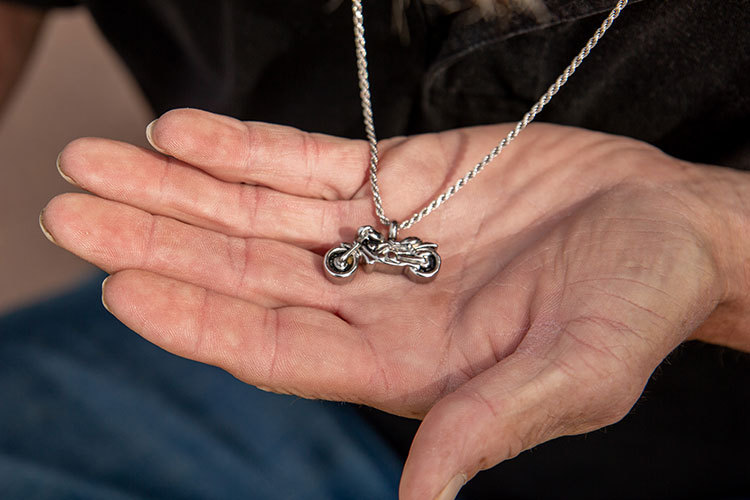
Bob’s son used to have a motorcycle like the one on his necklace. With his son’s ashes inside, Bob can carry his son with him every day. “I know he’s still with me.”
That’s when he joined the New Life Program at The Crossing, the Mission’s rehabilitation program for men. Everything seemed to be going well, but one day, Bob’s son was on his way to see him, got in an accident and sadly passed away.
“That blew my whole world apart,” Bob said.
That next week Bob relapsed and had to leave the program. Fortunately, he was able to rejoin the program later, making a promise to himself that his son’s efforts in helping him wouldn’t go to waste.
Bob went through the rest of the program and excelled, learning valuable life lessons from his counselor and other staff members. After graduating from the New Life Program, he joined Bridge, the Mission’s new name for the STAR Transitional Program.
A year later, Bob still struggles with the death of his son. Getting an emotional support dog, named Girl, has been one of his greatest sources of comfort. With Girl by his side, he knows he can get through even the hardest days.
“She’s been an emotional support more than you ever know,” he said. “Sometimes I just get heavy. I don’t know. I hope you never have to lose a child, but it’s just a heaviness, collapse and scared feeling.”
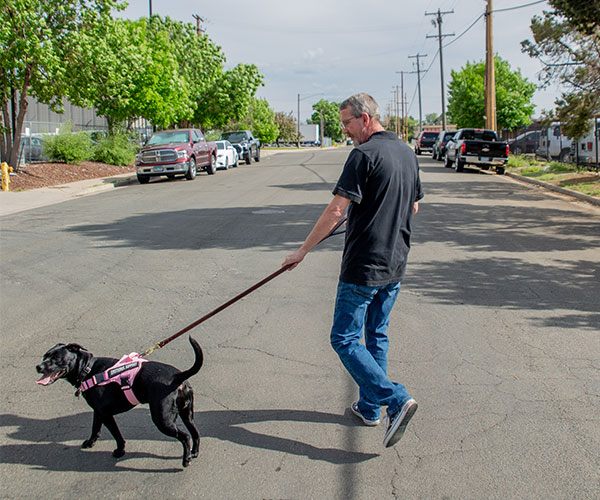
“Sometimes I just get heavy. I don’t know. I hope you never have to lose a child, but it’s just a heaviness, collapse and scared feeling.”
Bob shares some acts of kindness that strangers showed him during his time on the streets:
“I was walking one day, and a girl said, ‘It’s cold out here, are you going to be okay?’ Some guy was standing there and said, ‘You don’t have a coat?’ I said, ‘Not right now I don’t.’ He had a nice Carhartt, and pulls it off, brand new. I said, ‘I can’t take your brand new Carhartt.’ He said, ‘I got two of them, go ahead take it.’”
“There was a McDonald’s across the street, and the manager would stop by every three days and give me a $20 gift card to McDonald’s.”
“I even got to know different people who would come by every day. They knew me by name.”
“We had one winter where for three or four nights in a row, it was like below zero. This old man and this young girl asked me, ‘Where are you staying tonight?’ And I said, ‘I’ll find a little hole somewhere and cover up with my blankets.’ About five minutes later, they pulled back up and said, ‘Jump in. We’re going to take you somewhere warm.’ They got me a hotel. The next morning, I went to leave, and they said, ‘You got three nights.’ I just said, ‘Wow.’”
Each person you see has a story and a name. While giving money, food or other items to individuals who panhandle may meet their immediate needs, here are some things you can do to help fulfill their long-term needs:
Acknowledge Their Presence
Making eye contact, smiling, waving, and saying hello make a difference. Thos who can panhandle are routinely ignored. You can show them respect, which helps them feel dignified and seen.
Take the Time to Talk
We all crave community. “I rarely came across a person who was resistant to conversation.” Josh Geppelt, vice president of programs, said. “A lot of people who experience poverty also experience isolation. If you can engage even for a moment, that’s an aspect of helping them beyond poverty.”
Learn About & Share Resources
Denver Rescue Mission and other service providers offer support and guidance toward options for long-term stability. Share what you know. Sometimes our neighbors in need don’t l know where to find help.
As Bob looks toward his future, he hopes to find housing, continue his job in maintenance and most importantly, be a role model for his grandchildren. He is grateful to God for leading him to the Mission, and proud of himself for not giving up.
“I really don’t know where I would be if I didn’t have the Mission behind me right now,” he said. “They have been my source of maintaining stability.”
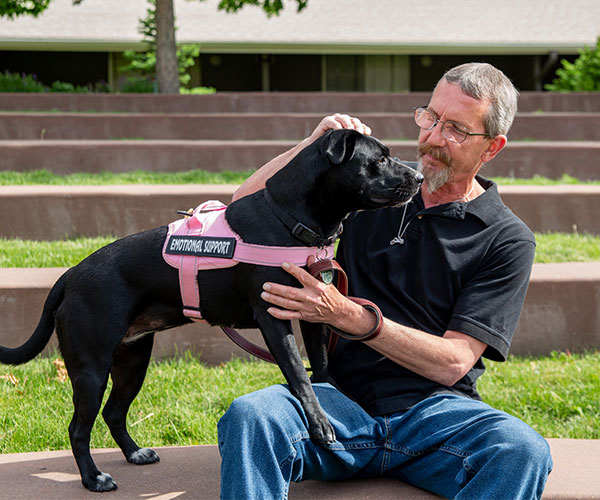
Thank You for Changing Lives
Thank you for helping people like Bob overcome obstacles and continue to persevere! Give today to continue to change lives!




